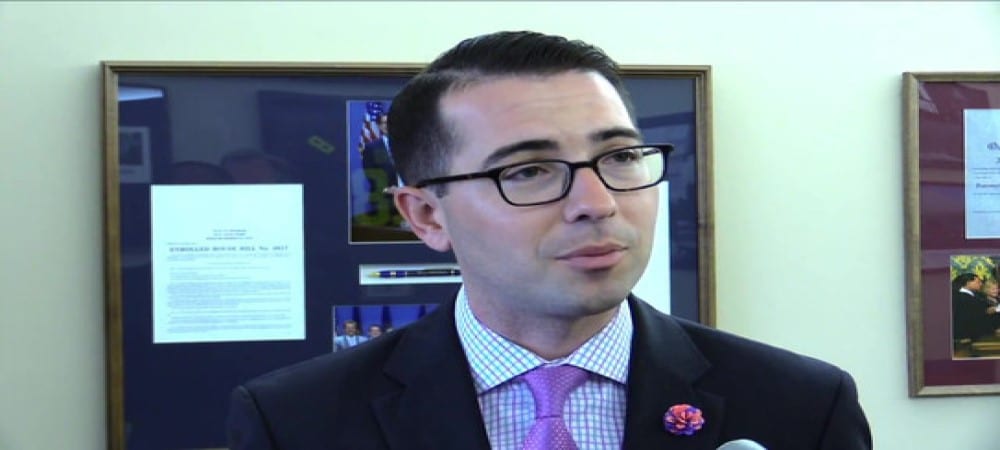- MI H 4926, a comprehensive iGaming and online sports betting bill, made it to the Governor’s desk during the last legislative session before it was ultimately vetoed.
- A Michigan sports betting bill would allow for retail sportsbooks to be built at both the state’s tribal casinos and the three commercial casinos in Detroit, MI.
- Michigan’s legislative session ends on December 31, 2019.
LANSING, Mich. – Since the start of the year, over a hundred sports betting bills have been introduced in states all across the country. While most states have concluded their legislative session this year, a few still have the chance to legalize sports betting in 2019, including Michigan.
The Wolverine State has a legislative session that lasts until December 31, 2019, and a history of an appetite for gaming expansion.
Last year, MI H 4926, an iGaming bill that included provisions for online sports betting, made it all the way to former Michigan Governor Rick Snyder’s desk. Governor Snyder ultimately vetoed the bill in the final days of last year’s legislative session.
Now that Michigan has a new governor, Rep. Brandt Iden, sponsor of MI H 4926, hopes to have better luck this year once he unveils his newest MI sports betting bill in late August to early September.
LegalSportsBetting got a chance to speak with Iden to get an inside look as to what Michigan lawmakers and hopeful sports bettors can expect to see after the legislature’s summer recess.
What’s Different This Time Around
Last year, online sports betting was only mentioned once in the MI H 4926 and didn’t provide much detail into how the industry might actually operate in Michigan. While the issues of iGaming and sports betting won’t necessarily be separated this year, sports betting will have a much greater focus.
“It will basically be a bill which will promulgate sort of the regulations for sports betting and also set the regs as well as the tax rates for both brick-and-mortar and online sports betting,” said Iden.
While the prospect of online sports betting isn’t new, the possibility for retail sportsbooks in Michigan is. Iden sees the state having a robust sports gambling market, which means including various stakeholders.
“The way I envision this working is that tribal casinos, as well as the commercial three, will be able to have a book or open a brick-and-motor book as well as be able to participate online,” said Iden.
Part of having a robust market also includes being able to bet on various sports. Michigan is home to several Division 1 collegiate programs which encompass fans from across the state.
Betting on college sports has been an issue in other states looking to pass sports betting but Iden sees having this ability as a crucial part of his upcoming MI sports betting bill.
“I have no intentions of excluding collegiate athletic events. In fact, I think that that’s going to be a key component in our state for both revenue as well as protecting the consumer,” said Iden.
Areas of Possible Contention For MI Sports Betting
Consumer protection is a key issue for Iden when formulating his upcoming bill. While some believe gaming expansion can hurt consumers Iden believes that proper regulations can create a safer gaming environment.
“This is about rooting out the bad actors in the marketplace, the bad bookies, the people that are taking advantage of people online. That’s first and foremost why I continue to push this legislation,” said Iden.
Iden also has provisions set up in his current iGaming bill that addresses the area of gambling addiction.
“The Internet Gaming Act bill, there is set aside of one million dollars that will go into the Problem Gaming Fund to help folks with problem gaming issues,” said Iden.
The biggest area of contention may not come from the moral perspective of legal sports betting but rather the potential revenue to come from legalizing the activity. Iden is currently looking at an 8 percent tax rate, but MI Governor Gretchen Whitmer has other ideas.
“The Governor has been pushing for astronomically high, I repeat, astronomically high tax rates for both the internet gaming bill and the sports betting piece…I’m willing to come off my 8 percent rate. That was a starting point for me…I’m willing to come up a little bit on that if that’s what the governor is looking for but it can’t be 40 percent. That’s just an unrealistic number,” said Iden.
While there is a stark contrast in the tax rates that both parties want, ongoing negotiations are taking place and Iden feels confident in the future of his bill.
“I’m very optimistic we’re going to be able to get it done…It may be the beginning of next year before you see our operators up and running. But, I am certainly hoping to have something on the governor’s desk before the end of this year.”
Advertising Disclosure
In order to provide you with the best independent sports betting news and content LegalSportsBetting.com may receive a commission from partners when you make a purchase through a link on our site.
News tags: Bill Shutte | Brandt Iden | Gretchen Whitmer | MI H 4926 | Michigan

– In his career, Hasan has worked both local and state government positions—including the Attorney General’s Office in Florida. On top of being familiar with the legislative process, he has also been researching and writing on the legality of sports betting across the US. Outside of work you’ll most likely find him producing or playing music, playing sports, or working on creative writing projects. You’ll also catch him at Doak Campbell Stadium cheering on the Noles.


 Bitcoin Sports Betting Sites
Bitcoin Sports Betting Sites Best Online Sports Betting
Best Online Sports Betting Famous Sports Bettors
Famous Sports Bettors States With Legal Sports Betting
States With Legal Sports Betting Sports Betting Events
Sports Betting Events




